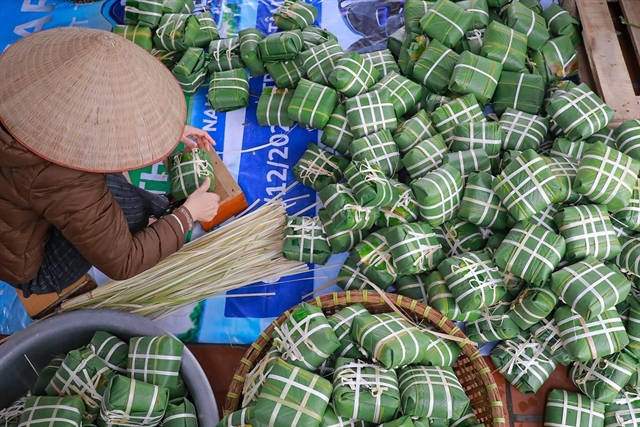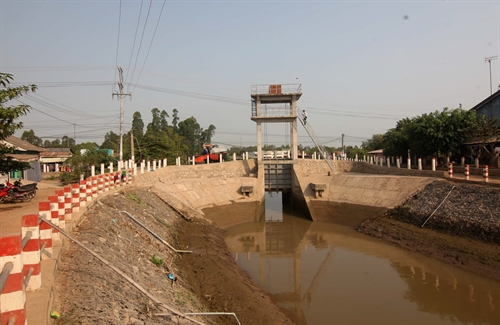 Society
Society

" />Experts have urged the Cửu Long (Mekong) Delta provinces to rezone irrigation systems and dredge canals to cope with the damaging effects of climate change.
 |
| Lò Mo Sluice in Long Kiến Commune, Chợ Mới District, in the southern An Giang Province. Irrigation systems in the Long Xuyên Quadrangle and Đồng Tháp Mười (Plain of Reeds) regions are said to be weak, and canals need to be dredged for better control of floods and saline intrusion. – VNA/VNS Photo Vũ Sinh |
HCM CITY – Experts have urged the Cửu Long (Mekong) Delta provinces to rezone irrigation systems and dredge canals to cope with the damaging effects of climate change.
The weakness of the delta’s irrigation systems has limited the control of floods and saline intrusion in recent years, said Đỗ Đức Dũng, head of the Southern Irrigation Planning Institute, who spoke at a meeting held on Wednesday (April 20) in Cần Thơ.
Drought and saline intrusion this year have affected 220,000 ha of rice and caused fresh water shortage to about 1 million people, according to the Ministry of Agriculture and Rural Development’s (MARD) Irrigation Department.
The irrigation systems in the Long Xuyên Quadrangle and Đồng Tháp Mười (Plain of Reeds) regions are weak and canals need to be dredged, according to Dũng.
The Ministry of Agriculture and Rural Development has submitted a zoning plan for the delta’s irrigation system for the 2012-20 period with a vision to 2050 to adapt to climate change.
The plan will upgrade 470km of embankments, build 192 sluice gates of various kinds, protect 27 km of coast and upgrade submerged forests.
The plan will have a direct influence on 1.2 million ha of land with 3.9 million people in 26 districts in nine provinces.
The plan will have an indirect impact on the Long Xuyên Quadrangle and Đồng Tháp Mười (Plain of Reeds) regions and Cà Mau peninsula and river mouth areas.
Several participants said the plan had not included sufficient measures to store fresh water for use in the entire delta.
Lương Ngọc Lân, director of the Bạc Liêu Province Department of Agriculture and Rural Development, said a list of the major plants and animals in the area were not included in the plan.
Such a list is needed to zone irrigation and solve infrastructure problems related to electricity, irrigation and water supply.
The irrigation zoning plan should cover the entire delta, he said.
Kim Ngọc Thái, deputy chairman of the Trà Vinh Province People’s Committee, said: “Measures should control saline intrusion at its source.”
Because of limited state funds, Việt Nam does not have the financial means to build irrigation works like those in the Netherlands and South Korea.
However, it can first find crops, aquatic breeding and animal husbandry that could adapt to brackish and fresh water areas.
Đỗ Văn Thành, head of Rural Clean Water and Water Resources Management Division under the MARD’s Irrigation Department, said: “In major rice growing areas, irrigation works and pumping stations will be built to irrigate and drain water.”
“Saline intrusion is a natural disaster, we have to find solutions to live with it,” he said.
To solve the issue of water drainage in the rainy season and water supply in the dry season, the Mekong Water Technology Innovation Institute plans to implement a pilot project called “soil bank” to dredge canals in the delta.
Trịnh Công Vấn, head of the Mekong Water Technology Innovation Institute, said the demand for dredging was high in the past but has become even more important because of serious drought.
Under the project, soil dredged from canals will be managed and traded as material for other construction projects.
If the dredged soil is managed effectively, then soil would not have to be dumped improperly, which causes pollution, Vấn said.
However, the delta needs plans to dredge canals in the medium- and long-term as the delta now has a one-year plan, he said.
“A dredging plan for the delta should be devised soon,” he said. – VNS




